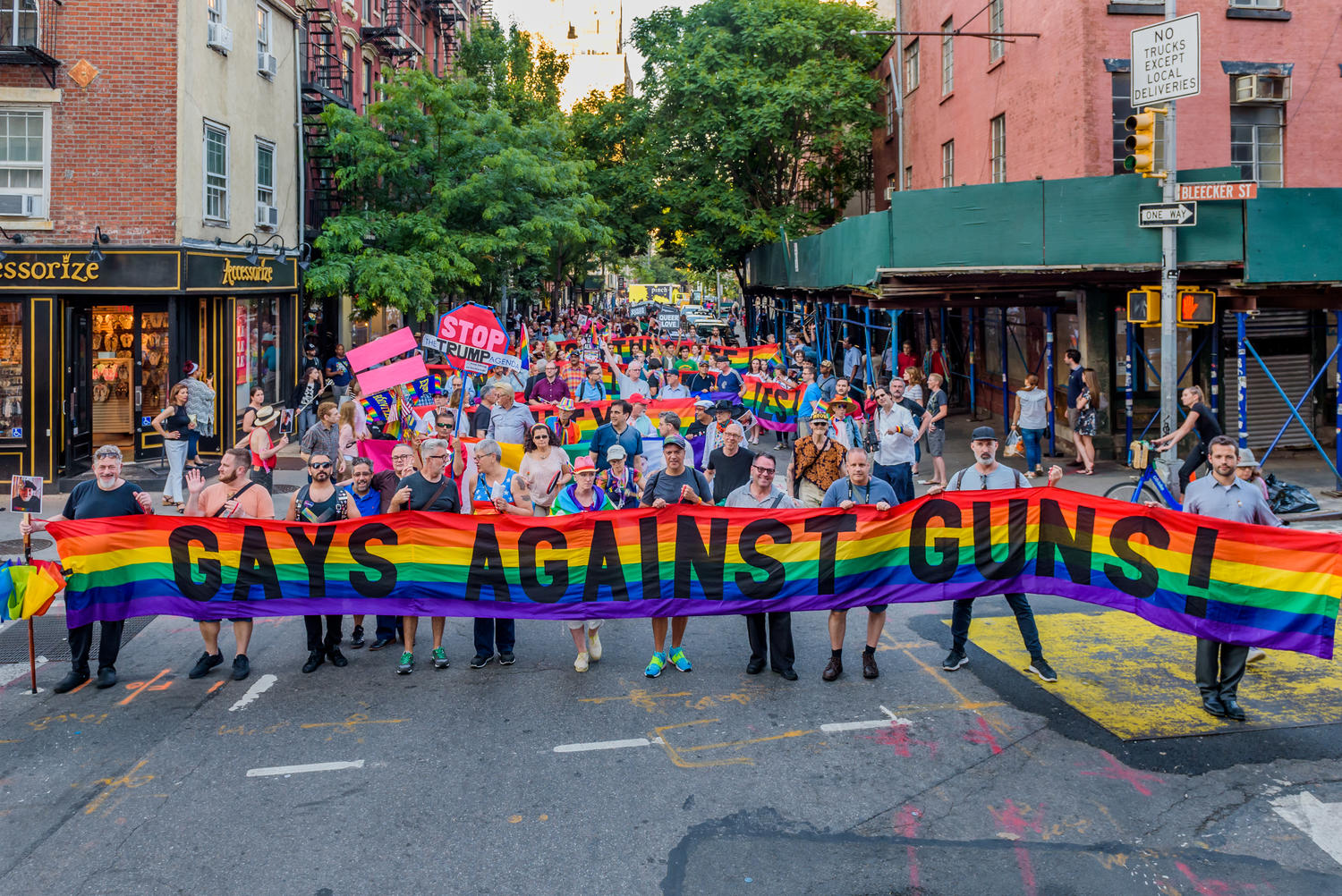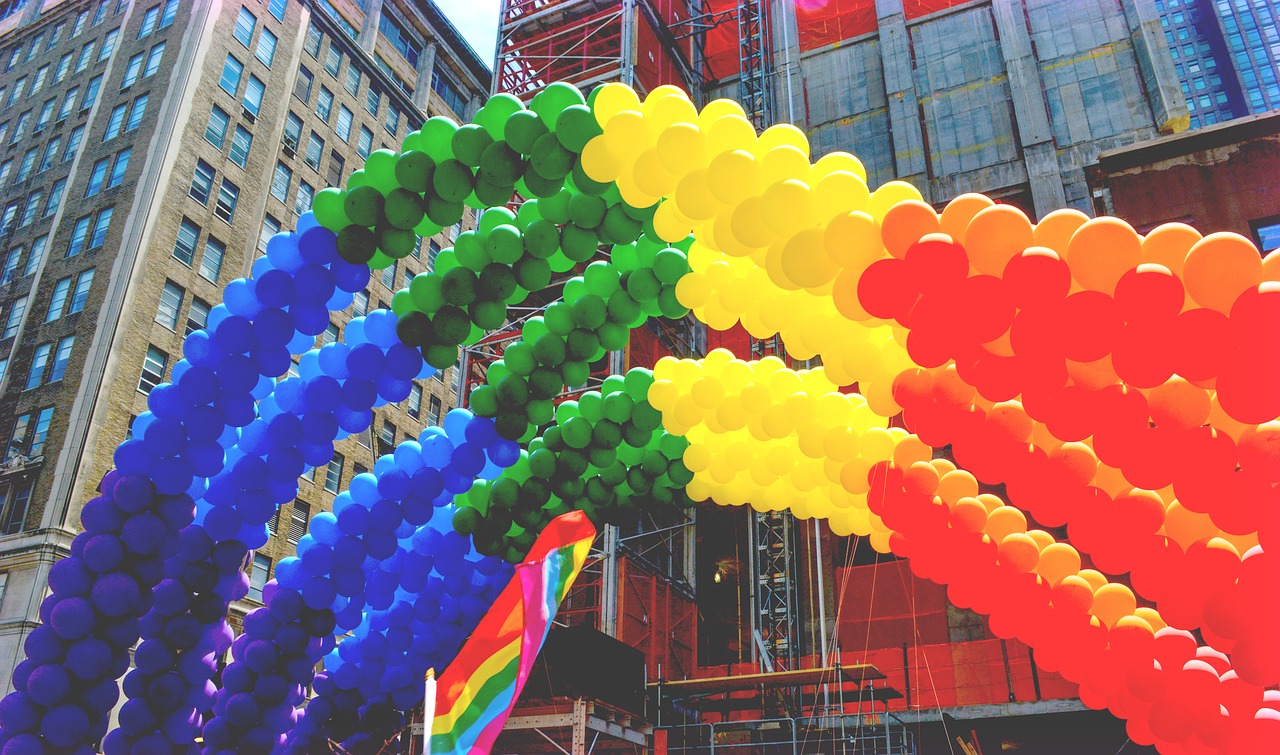Art and Culture
The Politically Homeless Life of a Gay Conservative
In this media culture is the implicit notion that gay people are monolithic, that they have no individual capacity to reason or hold different values.

I knew I was gay when I was eight years old, at least subconsciously. That was the first time I had that feeling, the one deep in my chest that took me decades to understand, for a boy named Ben at summer camp, and his deep blue eyes.
I didn’t know that I was a political conservative for many more years, until I came of age in an era of political correctness and resurgent socialism, developments that pushed me away from modern liberalism. When I realized I was both gay and conservative—that’s when I knew that I was a sort of living contradiction, at least insofar as how much of the world would see me.
The modern conservative movement still isn’t an entirely welcoming home for gay men. That much is widely known. But the true disgrace is that the progressive movement, to which most gays reflexively adhere, is too deeply ensconced in identity politics to reliably champion real progressive values. They see gay people like me who cross party lines not as independent thinkers who must be wooed back with fresh ideas, but as traitors worthy of contempt.
Nowhere is this better exemplified than in the progressive media ecosystem—including LGBT publications such as The Advocate and The Washington Blade. Between promotions for the pro-abortion Women’s March and profiles of gun-control advocates, gay media typically assumes the non-existence of LGBT people who don’t embrace left-wing politics. Queerty describes itself as “the leading gay and lesbian news and entertainment site.” But when you look past the drag queens and gay fanfare to articles calling for Ivanka Trump’s imprisonment and memes mocking the president, it’s clear that this website is no neutral advocate for sexual equality. What disturbs me is how Queerty casually assigns its editors’ beliefs to the entire LGBT community. Their slogan is “Free of an agenda (except that gay one)”—which is clever, but untrue.
Embedded in this media culture is the implicit notion that gay people are monolithic, that they have no individual capacity to reason or hold different values. The progressivism is so performative that pro-Trump groups have been barred from “Pride March” celebrations. How is that kind of insistence on ideological uniformity “progressive?” It signals the very opposite of diversity.
This type of thought can bleed into the personal lives of gay men. When I tried to date during college, liberal gays on campus spotted my record of conservative activism and dubbed me the “Fox News Faggot.” Ostensibly progressive students would message me on dating apps encouraging me to kill myself, or even “match” with me—the way you’d connect with someone on Tinder—just so they could tell me I was an awful person. At a certain point, I gave up.
I deleted all the gay dating apps from my phone and resigned myself to the fact that, at least within progressive Massachusetts circles, gay conservatives like me had little chance of finding a match. Not because I wasn’t willing to date across the political aisle—I was, and did—but because much of the LGBT community-at-large viewed me as a sort of political fifth columnist. Once, a boyfriend of over two months turned to me tearfully and confessed he didn’t think he could date a Republican any longer. The notion of dating someone who was pro-life or favored free markets filled him with shame.
Over the last few years, I’ve met countless conservative gay men—and most have echoed my experiences with progressive intolerance. One recent college graduate who now works in the finance industry recently told me how after one constitutional-law class, in which he debated the legal reasoning behind the gay-marriage landmark Obergefell v. Hodges, an angry gay student told him, “You’re setting us all back. The world would be better off if you killed yourself.” One gay veteran named Marcel said that he and his husband have been called “Uncle Toms” by former friends who found out that they weren’t Democrats. Another man told me he’s had several dates get up and leave when they found out he’s not a liberal.

Is this what passes for “woke” these days?
When someone assumes that a woman cannot be an engineer, that is rightly considered sexist. If it is taken for granted that a black man must like basketball, that is correctly called out as a form of prejudice. Why, then, is it considered acceptable—or even laudable in some circles— to not just assume, but insist, that gay men occupy a certain position on the political spectrum? It’s hardly progressive to declare that one’s preferences for this or that sexual organ must determine the workings of one’s inner mind.
And no, I am not blind to the intolerance on the right side of the spectrum. My father was a stereotypical white-collar Republican, a rough-around-the-edges small-business owner who just wanted the government to leave him alone. When he talked about the perils of excessive taxation or the right to self-defence, my young eyes would light up. But when I watched him cover his eyes whenever two men kissed on TV, I felt myself shrink inside.
It’s true that times have changed, and the modern GOP is much more accepting than the party once was. But the ugly reality remains that 60% of Republicans do not believe I should have the right to marry. As recently as November, a coalition of congressional Republicans protested the inclusion of LGBT protections in the new Canada-Mexico trade deal. This doesn’t make them evil. But it does make me politically homeless. How can I feel at home within a movement that doesn’t always accept an important part of my identity?
Whenever I think about this feeling of isolation, I’m reminded of a dusty, poorly-lit pizza place in Washington, D.C. I was a sophomore in college, hanging out with other young conservatives after one of those political conferences we couldn’t seem to avoid. Many of my Republican friends knew I was gay and didn’t care. But when some guy sitting across from me started talking about how homosexuality was an abomination, no one batted an eye—or even looked up from their iPhones. This hypocrisy shouldn’t surprise anyone. Donald Trump waved the rainbow flag at a campaign rally and promised support for the LGBT community, but then named Mike Pence as his running mate.
Dozens of Republicans I know have warmly embraced me and welcomed me into the conservative media world. Others have left comments on my articles describing their revulsion toward homosexuality, and sent tweets telling me to “sort my sins out before I worry about politics.” Or they shared ridiculous articles blaming homosexuality for pedophilia. At one conservative conference I attended, a speaker spun off into a tangent and wound up spewing nonsense about AIDS and gay immorality.
I expect these experiences will sound familiar to any gay conservative. One gay former student told me that his professor at a religious college spent a class ranting about “the gay agenda,” and insisted that being gay is a choice. In one Facebook group for young conservatives, members make posts comparing gayness to an “addiction” akin to alcoholism. One commentator eloquently implored dissident group members to “stop promoting mental illness.” So no, I won’t be getting an elephant tattoo any time soon—even as I acknowledge that many gay men feel largely welcomed by the Republican Party.
Caught betwixt and between, I don’t know what the solution is for a gay man with conservative inclinations who wants to engage publicly in American politics and policy formation. But I do hope that one day, we will live in an America where the freedom to love whom you want doesn’t come with spurious expectations about what political ideas you must embrace.






